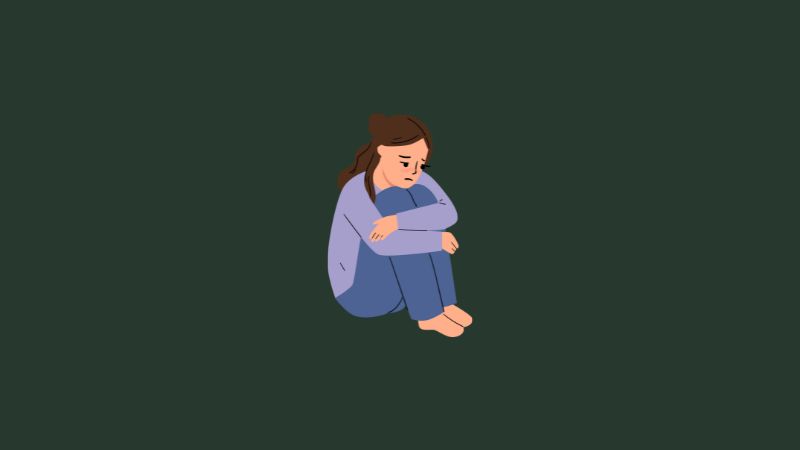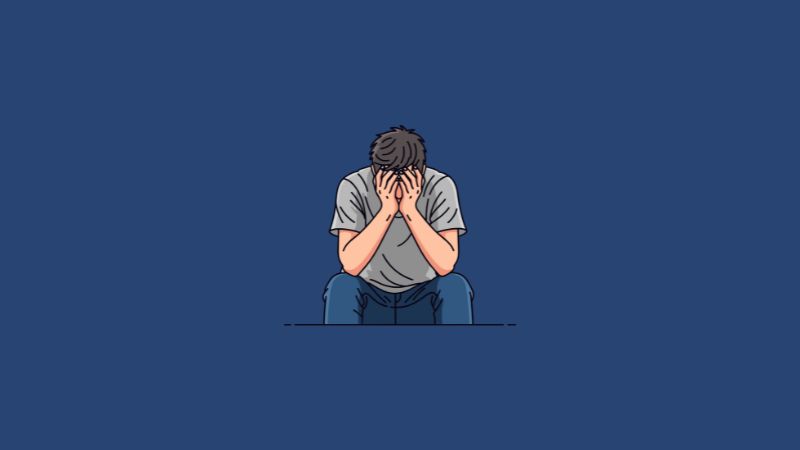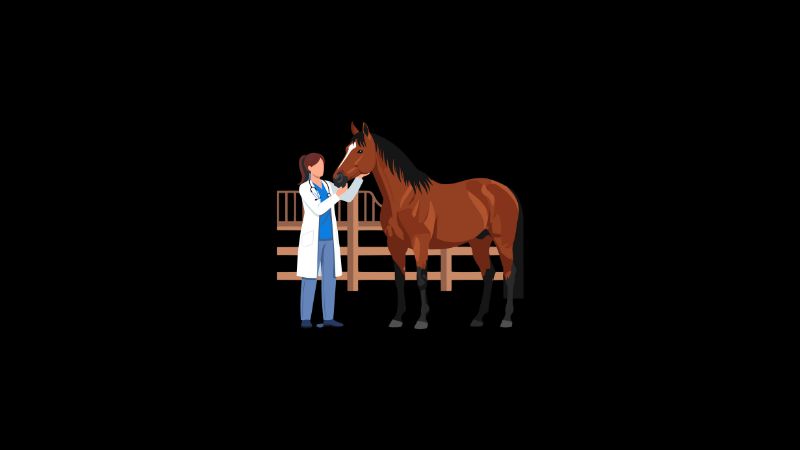Table of Contents
Affiliate link notice: As an affiliate of BetterHelp and other third-party vendors, We will receive compensation if you make a purchase using the links provided on this page. For more information, visit our disclosure page.
Last Updated on July 24, 2025 by Randy Withers
Depression is more than just feeling down. It’s a complex, whole-body condition that can affect every area of life—from how you think and feel to how your body functions. While often classified as a mental illness, depression frequently causes physical symptoms as well. For many people, emotional pain is only one part of the picture. Fatigue, body aches, digestive issues, and chronic inflammation are just as common—and just as real.
Understanding the effects of depression on health is crucial for reducing stigma, promoting early intervention, and helping people access the right kind of care. This article breaks down how depression impacts both mind and body, and what recovery can look like when both are addressed together.

What Is Depression?
Depression is a mood disorder characterized by persistent feelings of sadness, emptiness, or irritability—often accompanied by a loss of interest or pleasure in everyday activities. It isn’t just about having a bad day or going through a rough patch. Clinical depression affects how you think, feel, behave, and function over time.
According to the Diagnostic and Statistical Manual of Mental Disorders (DSM-5), a diagnosis of major depressive disorder (MDD) requires symptoms to last at least two weeks and interfere with daily functioning. But depression exists on a spectrum. It can range from mild and episodic to severe and chronic, sometimes showing up in subtle ways—like irritability, physical pain, or emotional numbness—rather than visible sadness.
Importantly, depression is not a sign of weakness or a lack of willpower. It’s a medical condition with psychological, biological, and social contributors.
How Depression Affects Mental Health
Depression affects the way people think, feel, and relate to the world. Cognitive symptoms like difficulty concentrating, negative self-talk, and indecision are common and often go unnoticed at first. Over time, these symptoms can build into a mental fog that makes even basic tasks feel overwhelming.
Emotional symptoms may include:
- Persistent sadness or emotional numbness
- Loss of interest in previously enjoyed activities
- Hopelessness or feelings of worthlessness
- Increased irritability or anger outbursts
- Social withdrawal or isolation
These emotional and cognitive symptoms can make it hard to function at work, maintain relationships, or even keep up with daily responsibilities. For many, depression erodes self-esteem and creates a cycle of shame and avoidance, reinforcing feelings of helplessness.
How Depression Affects Physical Health
Depression doesn’t just live in the mind—it can take a real toll on the body. While it’s easy to separate mental and physical health in theory, the reality is that your brain and body are deeply connected. The effects of depression on health are visible in several physiological systems.
Common physical symptoms include:
- Chronic fatigue or low energy
- Insomnia or excessive sleeping
- Headaches, muscle tension, or unexplained body aches
- Digestive problems such as nausea or irritable bowel symptoms
- Changes in appetite or weight
- Slowed movements or speech
These symptoms can persist even when emotional symptoms improve. In fact, some people first seek help for physical discomfort, only to later discover that depression is the root cause.
Types of Depression and Their Health Impact
Not all depression looks the same. Different subtypes impact physical and emotional health in different ways, and understanding the distinctions can guide more effective treatment.
Major Depressive Disorder (MDD):
MDD involves intense sadness, low motivation, and changes in appetite or sleep. It’s often accompanied by body aches, exhaustion, and a loss of interest in everything—even basic self-care.
Persistent Depressive Disorder (Dysthymia):
This low-grade but long-lasting depression can lead to chronic fatigue, digestive upset, or frequent headaches. Because it persists for years, its physical effects are often mistaken for unrelated health issues.
Bipolar Depression:
During depressive episodes, individuals may feel drained, disoriented, or physically sluggish. When followed by manic episodes, the emotional and physiological rollercoaster can wreak havoc on sleep, heart health, and immune function.
Seasonal Affective Disorder (SAD):
This type of depression, tied to seasonal changes, often causes lethargy, oversleeping, carb cravings, and reduced immune resilience during darker months.
Each type of depression involves unique neurochemical patterns that affect both brain and body. Recognizing the subtype can help clinicians and patients match symptoms to the most effective care.
The Mind-Body Connection: What’s Really Happening
When you’re living with depression, your nervous system and immune system respond as if you’re under chronic stress. Cortisol, the body’s primary stress hormone, may become dysregulated, contributing to inflammation, pain sensitivity, and metabolic issues. Your brain’s neurotransmitter systems—including serotonin, dopamine, and norepinephrine—also become imbalanced, which impacts everything from mood to digestion.
Over time, this state of physiological imbalance wears the body down. The immune system may become compromised, the cardiovascular system strained, and the gut-brain connection disrupted. These combined effects increase vulnerability to other conditions like diabetes, heart disease, or autoimmune disorders.
This is why the effects of depression on health go far beyond mood—and why comprehensive treatment is essential.
Treatment Options That Address the Whole Person
Because depression affects both mental and physical systems, the most effective treatments consider the full picture. A whole-person approach doesn’t just target symptoms—it supports the systems that influence mood, energy, and resilience.
Psychotherapy:
Talk therapy helps unpack the emotional roots of depression while also building coping strategies. Approaches like cognitive behavioral therapy (CBT), acceptance and commitment therapy (ACT), and interpersonal therapy (IPT) can help people challenge unhelpful thoughts and re-engage with life.
Medication:
Antidepressants remain a cornerstone of depression treatment. They help regulate neurotransmitters like serotonin and norepinephrine, which influence both mood and physical well-being. If you’re beginning treatment with a selective serotonin reuptake inhibitor (SSRI), you can often access a Lexapro prescription online through telehealth platforms that work with licensed providers.
When sleep disruption or appetite loss is a concern, some clinicians may recommend mirtazapine, which has a more sedating profile. Patients exploring this option can find Remeron prescriptions online or at leir local pharmacy.
In cases where standard medications haven’t provided relief, esketamine may offer a promising alternative. Administered in a clinical setting under supervision, a Spravato prescription is also available online with your physician’s approval.
Nutrition and Movement:
A nutrient-dense diet and regular movement both regulate inflammation and support neurotransmitter balance. Exercise has been shown to increase neuroplasticity and reduce symptoms of mild to moderate depression.
Sleep and Nervous System Regulation:
Practices like breathwork, progressive muscle relaxation, and circadian rhythm alignment help reduce the physical toll of chronic stress on the body.
Integrated Care Models:
Many providers now offer coordinated care that includes therapy, psychiatry, and physical health monitoring. This model is especially effective when addressing the effects of depression on health because it catches issues that might otherwise go untreated.
Whole-person treatment isn’t about doing everything at once—it’s about layering support in a way that works for each individual’s needs, preferences, and context.
Final Thoughts
Depression is not a weakness or character flaw—it’s a serious health condition with far-reaching consequences. The emotional toll is only part of the story. Untreated depression can also weaken your immune system, disrupt your sleep, increase your risk of chronic illness, and make everyday functioning feel impossible.
But with awareness, support, and comprehensive treatment, recovery is absolutely possible. Addressing both mental and physical symptoms gives people the best chance of healing—not just surviving, but living fully again.
Understanding the true effects of depression on health can help you take the next step, whether it’s reaching out to a therapist, talking to your doctor, or simply recognizing that what you’re feeling is valid—and treatable.
FAQ: Effects of Depression on Health
What are the most common effects of depression on health?
The most common effects of depression on health include fatigue, sleep disturbances, digestive issues, increased pain sensitivity, and reduced immunity. These symptoms can be just as disruptive as the emotional toll of depression and may persist even when mood begins to improve.
Can depression really cause physical pain?
Yes. Depression can lead to chronic pain by increasing inflammation, disrupting neurotransmitter function, and activating stress pathways in the body. Many people experience muscle tension, headaches, or body aches without realizing depression is a contributing factor.
How do doctors treat the physical symptoms of depression?
Doctors may address both emotional and physical symptoms using a combination of therapy, medication, and lifestyle changes. Integrated care that treats the full body—including sleep, nutrition, and movement—is especially effective in managing the effects of depression on health.
Are there different effects based on the type of depression?
Absolutely. For example, bipolar depression may affect sleep and energy regulation differently than persistent depressive disorder. Seasonal affective disorder tends to increase fatigue and appetite. Understanding your type helps tailor treatment for all dimensions of health.
Can treating depression improve physical health too?
Yes. When depression is properly treated, physical symptoms often improve. Better mood regulation, reduced stress hormone levels, and more energy typically follow. This makes addressing the effects of depression on health an essential part of long-term wellness.






